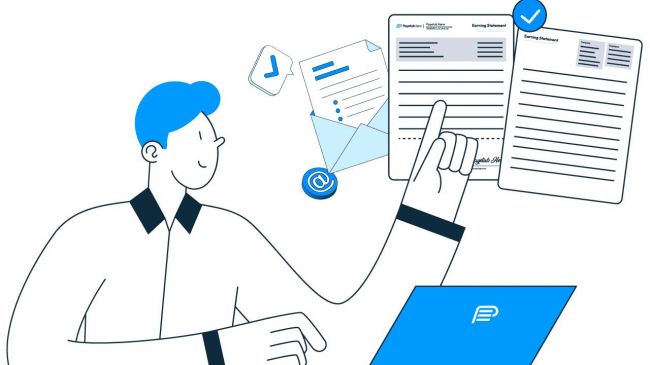Being good with appointments is absolutely essential to great customer service, regardless of anything else. Whether you work in retail, healthcare, or any other service-based sector, the proper software for queue appointments can completely change your business operations.
From scaled-down schedules to reduced wait times, a dependable queue appointment software solution helps companies increase efficiency and customer satisfaction.
But with so many choices to pick from, selecting the most suitable queue appointment software for your particular trade can seem daunting.
The blog will investigate important variables to take into account when choosing scheduling software and offer advice on how to best select SaaS business appointment queue software for your requirements.
Why You Need Queue Appointment Software for Your Business

Before diving into how to choose the right queue appointment software, let’s first explore why such software is essential for your business. Through phone, email, or in person, conventional scheduling techniques might result in double bookings, missed prospects, and ineptitude. Companies could streamline operations, improve communication, and cut customer wait times by means of queue appointment software.
Key benefits of queue appointment software include:
- Enhanced Customer Experience: Reduces wait times and frustration.
- Increased Operational Efficiency: Automates appointment booking, cancellations, and reminders.
- Better Resource Management: Ensures optimal allocation of resources, such as staff and equipment.
- Improved Business Insights: Helps track appointment trends and customer data.
Factors to Consider When Choosing Queue Appointment Software
Your special company requirements ought to guide the accurate SaaS solution for queueing appointments. The best answer for your industry will depend on several crucial considerations.
1. Industry-Specific Features
Whether the queue appointment program has industry-dependent functionality is the first thing to weigh. For instance, hospitals might need the software to help with patient check-ins and HIPAA compliance; meanwhile, retail firms might need a solution that integrates with inventory control or customer loyalty programs. Verify the program has the required features for your particular field of work.
For Healthcare
- Patient Registration: The software should allow easy registration of patients and track their appointment history.
- HIPAA Compliance: Ensure the software adheres to privacy laws to protect patient information.
- Waitlist Management: The ability to manage walk-ins or waiting lists is crucial in healthcare environments.
For Retail
- Customer Loyalty Integration: Consider software that integrates with your loyalty programs.
- In-Store Queue Management: In retail, managing queues in-store is important, especially during peak shopping hours.
- Product Availability Sync: The software should be able to check product availability and booking times.
2. Ease of Use
How easy the program is to use is among the most significant criteria when selecting appointment scheduling software. Difficulties operating the system for your staff or clients will result in irritability, mistakes, and inefficiency. Search for easy-to-integrate, user-friendly programs. Make sure the system presents:
- Simple Appointment Booking: Both your customers and staff should be able to book and manage appointments easily.
- Customizable Interface: Customizing the look and feel of the software to fit your business’ branding and workflow is crucial.
- Multi-Device Support: The software should be accessible via various devices, from smartphones to desktops.
3. Integration Capabilities
Still another crucial factor is the level of integration of the line appointment system with other systems you currently utilize. Whether it's your point of sale (POS) system, email marketing tool, or customer relationship management (CRM) system, flawless integration will guarantee easy operations.
For retailers, the software may have to synchronize with inventory systems; for hospitals, it might have to link with digital health records (EHR) platforms. Integration of business appointment queue SaaS software streamlines work and reduces manual data input. Hence, it helps to guarantee a natural gradient.
4. Appointment Reminders and Notifications
Many sectors can suffer greatly from appointment no-shows. Automated reminders and alerts are here. Reducing the possibility of missed appointments, a great appointment scheduling program will send automatic appointment reminders via email or text message.
Search for software that:
- Sends reminders at customizable intervals (e.g., 24 hours, 1 hour before)
- Allows customers to confirm, reschedule, or cancel appointments
- Provides real-time notifications for both customers and staff in case of delays or changes
5. Reporting and Analytics
Effective tracking of important numbers and insights into your company operations depends much on your reporting tools. Analyzing data is essential for enhancing your scheduling systems since it measures staff output, monitors consumer choices, or discovers top appointment times.
Look for software that provides:
- Customer Data: Insights into customer behavior and preferences.
- Appointment Trends: Reports on no-shows, peak times, and average appointment duration.
- Resource Allocation: Analytics on how resources like staff and rooms are being utilized.
6. Scalability
Your queue appointment software should expand along with your company. The software should be able to grow and meet your changing requirements, whether you are increasing locations, employees, or services.
A local salon might, for instance, begin with few clients but grow to several sites eventually. The program should effortlessly manage an increase in service offerings, staff, and bookings without much of a revision.
Customer Support
Excellent customer service is crucial for effective queue appointment software use. Should problems arise, you have to reach fast support and deftly fix them. Verify the software provider's offering with:
- 24/7 Customer Support: Especially important for businesses with high appointment volumes.
- Comprehensive Knowledge Base: Access to guides and FAQs can help resolve common issues independently.
- Training Resources: Onboarding and training should be readily available to get your team up to speed.
Best Queue Appointment Software for Various Industries
Having said the main elements to look at, let's discuss some of the top queue scheduling software available for many sectors.
1. Government Services: Qminder
Best suited for government agencies and medical companies, Qminder is an all-rounder SaaS tool for managing corporate appointments. Customers can schedule appointments, check in, and get updates without the long wait time anxiety. Since the platform is meant to efficiently control lines and supply insights into service consumption, it is ideally suited for government agencies.
Key Features:
- Queue management for multiple locations
- SMS, email, or kiosk check-in options
- Integration with customer data systems
- Reporting and analytics for service improvement
2. Retail: Square Appointments
Particularly useful for small retail businesses, Square Appointments is a strong appointment scheduling tool. Seamlessly integrating with Square's POS system, this helps consumers schedule appointments online and accept payments. Square Appointments can help retailers coordinate employee appointments and schedules.
Key Features:
- Online booking for customers
- Employee scheduling management
- Integration with Square POS
- Automated reminders and confirmations
3. Beauty & Wellness: Vagaro
Beauty and wellness companies find Vagaro perfect. For salons, spas, and fitness facilities, it gives a queue appointment system that ensures a seamless booking experience for staff and consumers. Additionally, it integrates with several point-of-service systems and helps with internet transactions.
Key Features:
- Online booking and appointment management
- Client reminders and follow-ups
- Customizable booking options
- POS and payment processing
4. Corporate: Timely
Ideal for business settings, Timely is a queue appointment software program. Perfect for internal meetings, training sessions, and customer appointments, it provides a clever booking system that automatically adapts to staff availability.
Key Features:
- Employee availability synchronization
- Smart booking algorithms
- Meeting scheduling and management
- Reporting and analytics
Choosing the Right Queue Appointment Software for Your Industry
Choosing the appropriate SaaS solution for your company's appointment queue can significantly transform appointment management, customer satisfaction, and work flows. You may identify the software most ideal for you by taking into account industry-specific elements, simplicity of use, integration possibilities, and scalability, among other things.
Great scheduling software will help you streamline your business, whether you are in beauty, retail, or healthcare, and increase efficiency. The main thing is to make sure that the software you select not only has powerful capabilities but also suits your particular business needs and consumer expectations.
FAQ
How can queue management software benefit my business?
Appointment scheduling is simplified by queue management software, hence reducing wait times and enhancing client satisfaction. Better distribution of resources lets companies match staffing levels with demand. Ultimately resulting in higher productivity and consumer retention, the program can also minimize no-shows with reminders, improve operational effectiveness, and give crucial data insights for decision-making.
How much does it cost to implement queue appointment software?
Depending on your company's size, number of users, and desired functionality, the expense of installing queue appointment software will be. Many companies provide tiered pricing schemes depending on the level of service: from simple choices for small businesses to more sophisticated ones for big enterprises. Extra expenses could cover customizing, integration fees, and continuous maintenance. To make sure it falls within your spending, you need to evaluate the entire cost of ownership, including support and training.
Post Comment
Be the first to post comment!





